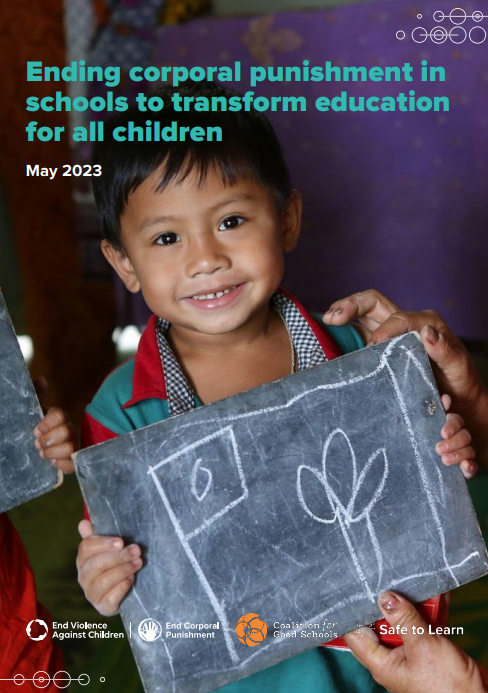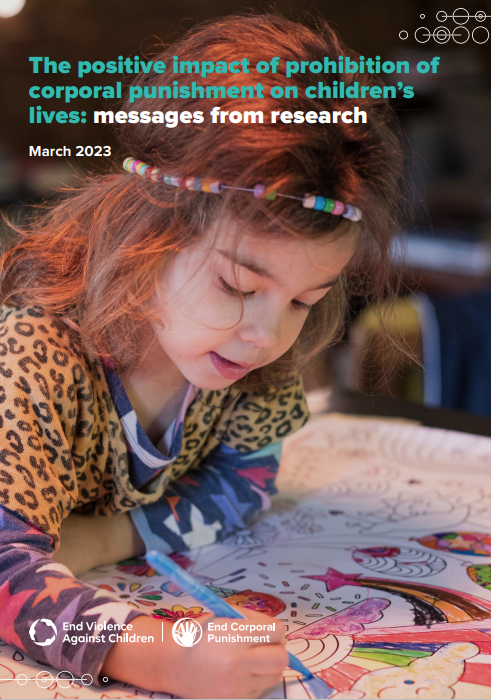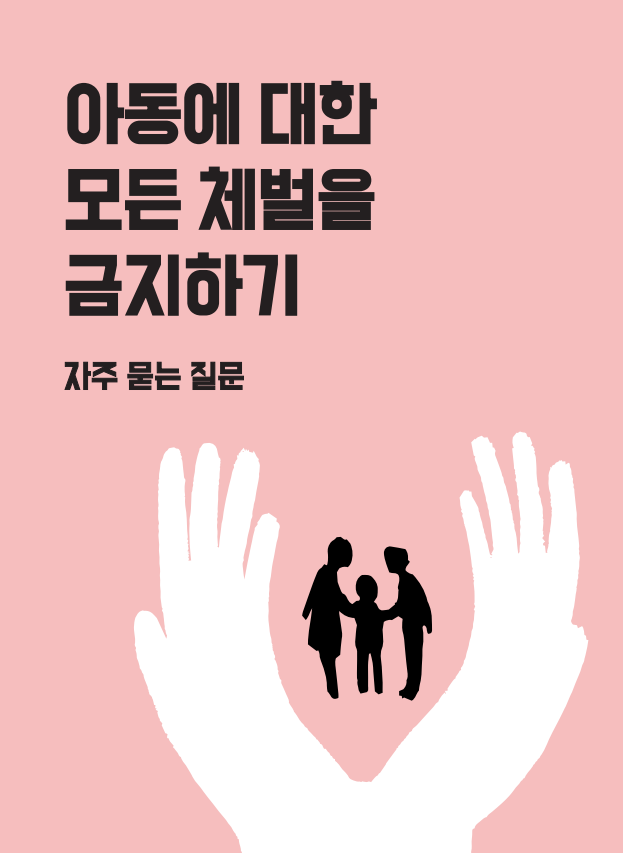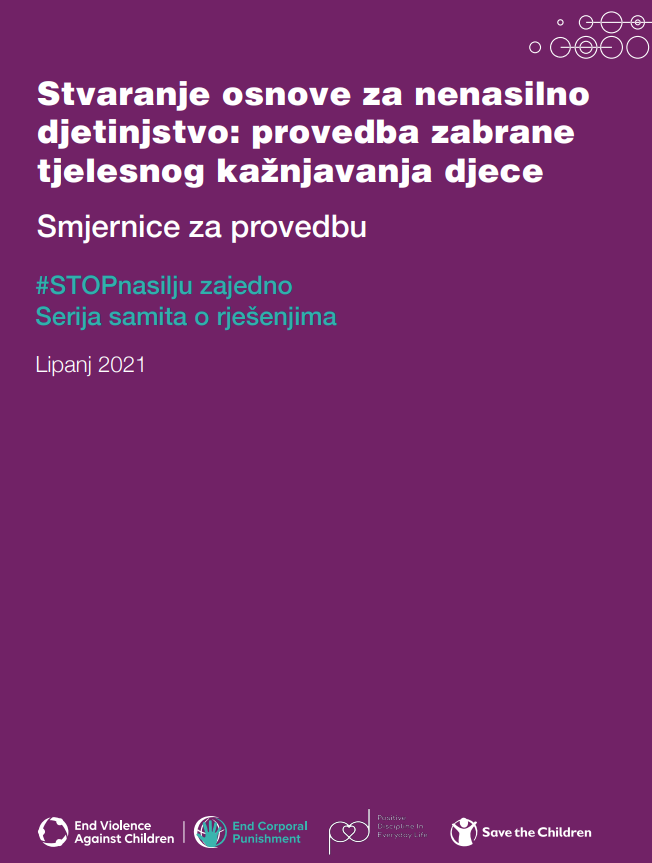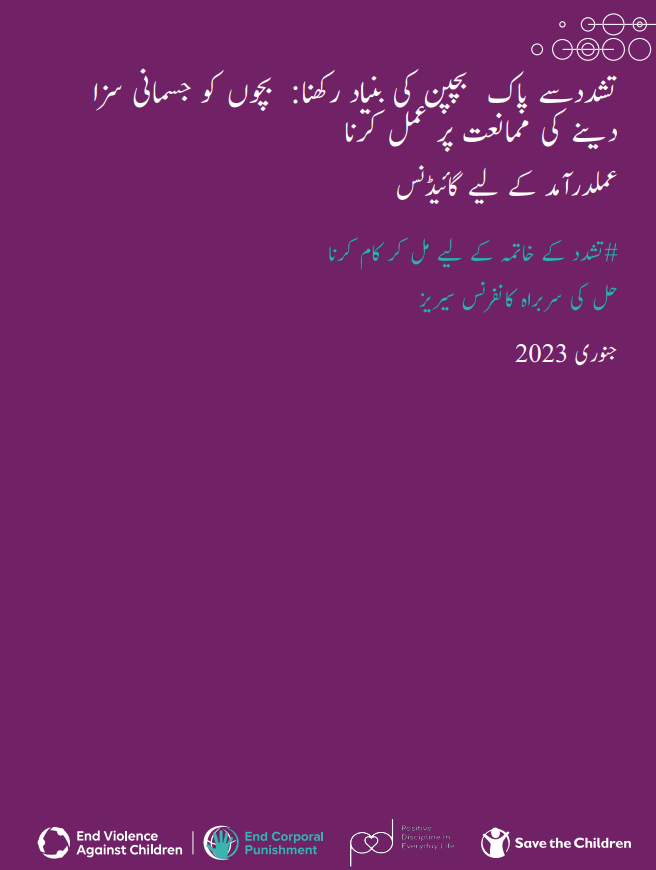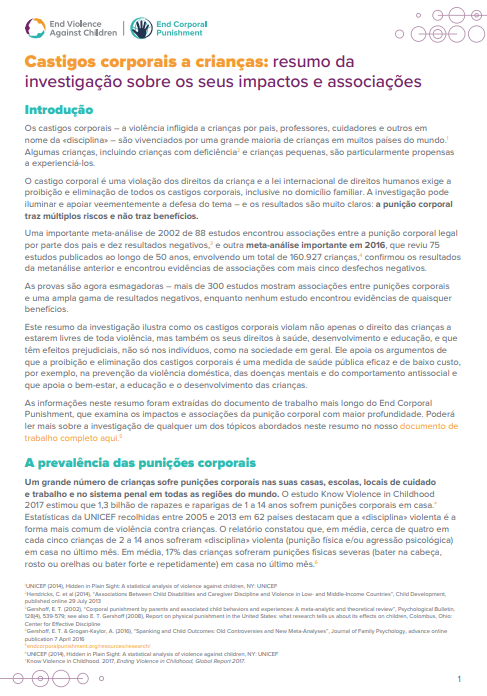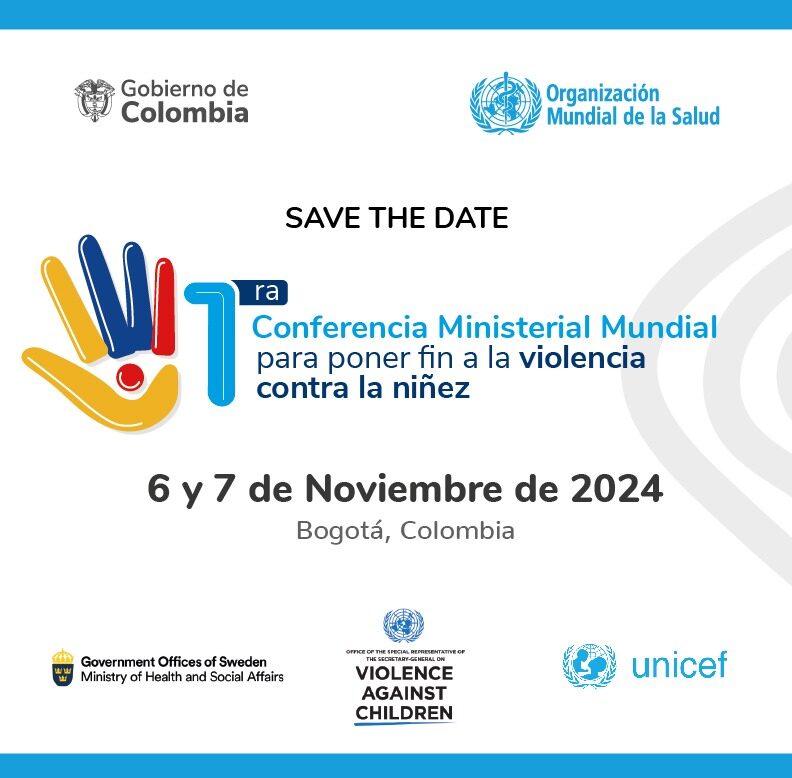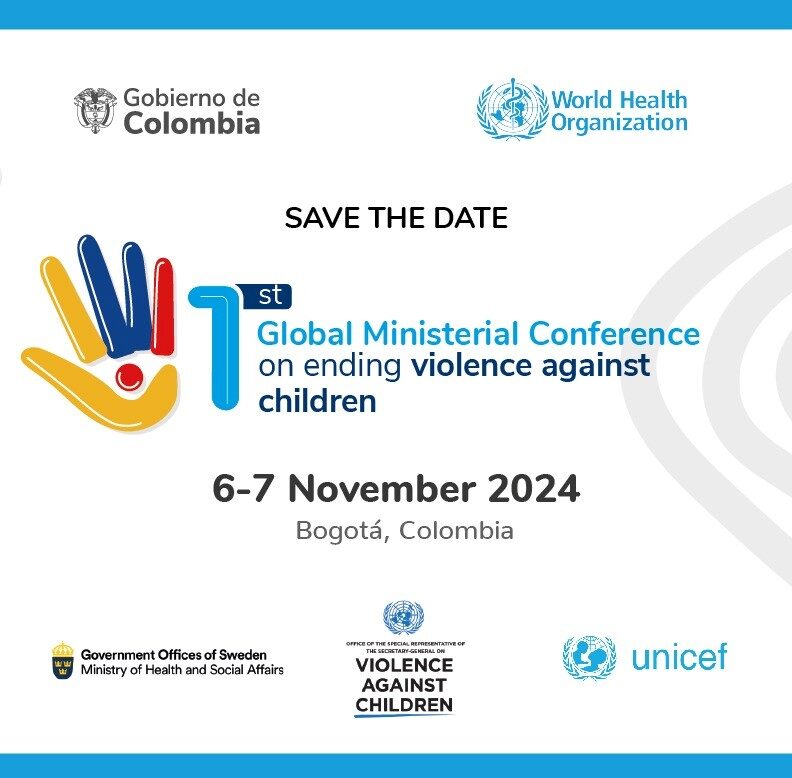2023 highlights – and renewed commitment and action in 2024!
In many ways and for many people, 2023 has been a difficult year, and yet collectively we have continued to make progress towards ending corporal punishment of children. Whether you work at a community level supporting families, on international programmes, or anywhere in between - we want to say thank you for your commitment and effort. Together, it all makes a difference!
We are pleased to provide a short review of the highlights from 2023, and a preview of what is coming up in 2024.
Law reform
In April Sierra Leone passed a law prohibiting corporal punishment in schools. In the US, the States of Colorado and Idaho prohibited corporal punishment in public schools- respectively in March and April. In July, the State of Maryland extended prohibition of corporal punishment from public schools to private schools and childcare homes and centres. The State of New York also extended public school prohibition of corporal punishment to private schools in October.
This year no states worldwide enacted laws banning corporal punishment in all settings including the home (to our knowledge), but several governments announced plans to do so, including Taiwan, the Czech Republic, Cambodia and Switzerland.
Our new publications in 2023
Legal and human rights developments
In September, the African Court on Human and People’s Rights ordered the repeal of all laws authorizing the use of corporal punishment in the United Republic of Tanzania, and in November, Defence for Children International Belgium announced that it was suing the Belgian Government for its failure to prohibit corporal punishment.
During 2023 we submitted 45 briefings to human rights treaty bodies and mechanisms including the CRC, CAT and the UPR. 20 recommendations to prohibit and eliminate corporal punishment were made, and India, Indonesia, Morocco and the Philippines were among states that accepted recommendations to prohibit corporal punishment in the home or other settings.
Campaigning
2023 has seen active and well organised campaigns in many countries, some pursuing law reform and others calling for better implementation of the law and support for non-violent child raising. In April partners across the world got involved in the International Day to End Corporal Punishment, reaching millions of people with the message that violent punishment of children can and must end.
New hosting arrangements
After three successful years being hosted by the End Violence Partnership, in September we transitioned to new hosting arrangements with the World Health Organization. We are excited about this new chapter, will continue to independently monitor and advocate for progress on ending corporal punishment around the world, and work with our full range of partners.
2024: a renewed commitment to ending violence against children
With six years until 2030 and the end of the SDG timeframe, 2024 will be a critical year to revitalise the movement to end violence against children (EVAC). In September the Summit for the Future will reaffirm existing commitments including to the SDGs, and agree the Pact for the Future including commitments to youth, future generations and peace and security.
In November the Governments of Colombia and Sweden will host the first ever Ministerial Conference on Ending Violence Against Children in Bogota, in partnership with the Special Representative of the Secretary General on Violence Against Children, UNICEF and WHO.
An intergovernmental declaration will confirm renewed commitment and energy to EVAC, Governments will pledge enhanced action, a new youth movement will be supported and critical issues including corporal punishment will be highlighted. A range of national and regional meetings will take place in the preceding months, developing plans and building commitment.
2024 will also see the renewal of the Pathfinding programme, led by the Office of the SRSGVAC, and there will be a series of opportunities calling for faster progress on ending corporal punishment of children, including the International Day to #EndCorporalPunishment on 30 April.
We look forward to working with you throughout 2024, highlighting the criticality of ending corporal punishment, the most common and normalised form of violence against children. More information coming in the New Year!
Thank you for partnership in 2023, we wish you all a peaceful end to the year.
Bess Herbert, Advocacy Specialist - Corporal Punishment
Sonia Vohito, Legal Policy Specialist – Corporal Punishment
Want to receive our news announcements and occasional email updates? Register HERE.

